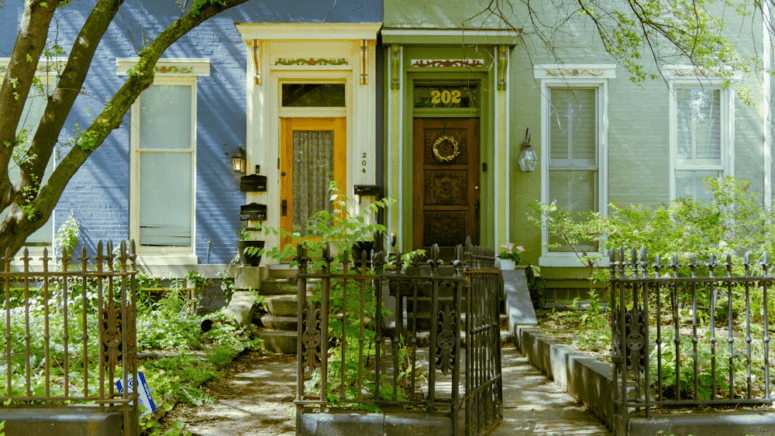Closing Costs in Pennsylvania: A Guide for Sellers
- Published on
- 5 min read
-
 Joseph Gordon EditorClose
Joseph Gordon EditorClose Joseph Gordon Editor
Joseph Gordon EditorJoseph Gordon is an Editor with HomeLight. He has several years of experience reporting on the commercial real estate and insurance industries.
Selling a home in Pennsylvania comes with its share of expenses, including closing costs. Closing costs are various fees and expenses that arise during the final stages of a real estate transaction. These costs typically include taxes, agent commissions, and administrative fees.
Sellers need to be prepared for specific closing costs unique to Pennsylvania. Our guide will walk you through the essential costs to expect when selling your property in Pennsylvania, ensuring you know what to anticipate and budget for as you proceed with your sale.
Disclaimer: This article provides estimates of a seller’s closing costs that are meant for educational and research purposes only; our calculations are not a guarantee.
What are closing costs?
Closing costs are the expenses paid to finalize a home sale. These costs include property taxes, insurance, and administrative fees. Some closing costs, such as transfer taxes, can vary depending on where your home is located at the time of sale.
Understanding these fees will help you prepare for the financial obligations of selling a property. Learn more about who typically covers closing costs and what to expect in your transaction.
Mortgage/Loan payoff amount
Before selling your home, you’ll need to settle the outstanding balance on your mortgage, known as the loan payoff amount. This amount includes the remaining principal balance and any interest accumulated over time. In some cases, additional fees such as late charges or prepayment penalties may also be part of the payoff amount.
The loan payoff amount must be clear before the sale can be completed. Ensuring the loan is fully paid off allows the seller to transfer a clear title to the buyer, free of any mortgage obligations.
Property taxes
According to WalletHub, Pennsylvania ranks 40th in the country in terms of property taxes, placing it above states like Ohio and Texas.
Real estate in Pennsylvania is taxed at a rate of 1.36%, with a median home value of $312,000. To get a better idea of what you might owe, consult a property tax calculator.
Reconveyance fee
After the sale of your home is complete and your mortgage is fully paid off, you may be required to cover a reconveyance fee. This fee covers the processing of a reconveyance deed, a legal document that officially releases you from the debt tied to your mortgage.
Your mortgage lender will be responsible for recording this deed with the appropriate county or state office. The cost of the reconveyance fee can vary depending on your location, so it’s important to be aware of the potential expense.
Realty transfer tax
You also might be responsible for what’s known as a realty transfer tax. These are fees assessed by local governments whenever a property changes ownership.
These taxes are sometimes called a “Deed Excise tax” or a “Documentary Stamp tax.” Who ultimately pays these taxes depends on the state, city, or county where the sale occurs.
In Pennsylvania, for example, both buyer and seller are typically responsible for covering transfer taxes as part of the closing costs.
Real estate agent commission
Unless you’re selling your home for sale-by-owner, you’ll likely have used a local agent. Research indicates that an agent’s expertise can significantly impact your sale: In 2023, homes sold with an agent’s assistance had a median price of $405,000, compared to $310,000 for FSBO sellers.
Working with a real estate agent means paying a commission. This fee covers various services, such as accurately pricing your home, marketing it effectively, and negotiating with buyers to ensure you receive the best possible price and terms.
It should be noted, however, that on March 15, 2024, the National Association of Realtors (NAR) announced a landmark lawsuit settlement that will change the way real estate agent commissions are handled in the future. These changes will “decouple” seller and buyer agent compensation. Industry experts predict that this decoupling will likely lower agent fees and give buyers the ability to negotiate commission amounts directly. Learn more.
HomeLight’s transaction data reveals that the national average real estate agent commission is 5.8% of the property sales price. This commission typically includes fees for both the listing and buyer’s agents, with sellers customarily covering the cost.
Use HomeLight’s commission calculator by entering your city for commission data tailored to your specific area.
Attorney Fees
Some states require an attorney to be present when closing the sale of a property.
Real estate attorneys are not essential for closing, but your real estate agent may suggest working with one anyway.
Homeowners Association/Condo Fees
One of the biggest sticking points for sellers is the fees levied by their homeowners’ association (HOA) or condominium association fees.
Like other fees we’ve discussed, these will vary, not just because of the different rules and regulations of your local HOA but also because HOA regulations vary greatly depending on the state. These fees (or dues) are usually prorated at the time of the sale.
The average monthly HOA fee in Pennsylvania is $385.
Seller’s concessions
In Pennsylvania, sellers might be responsible for covering certain costs at closing due to financing concessions agreed upon during negotiations. These concessions often involve contributing towards closing costs, repairs, or even offering home warranties to sweeten the deal for the buyer.
A typical concession is repair credits, which come into play when a buyer includes a contingency related to the home inspection. If the seller declines to make repairs identified by the inspector, the buyer can back out with their earnest money intact. Instead of handling the repairs themselves, sellers can offer repair credits, which provide cash to cover repair costs at closing. However, these concessions are less common in seller’s markets, as contingencies can be less attractive to prospective buyers.
Miscellaneous closing costs/fees
These are some of the most common closing costs you’ll face as a seller in Pennsylvania. However, it’s worth noting that many of these costs are negotiable. Your buyer might be open to discussing terms, and working with a top local agent or real estate attorney could help you secure a better deal on closing expenses.
If you’d rather bypass the traditional process of working with an agent and negotiating costs, consider HomeLight’s Simple Sale program. With Simple Sale, selling your home becomes straightforward with just three steps: provide basic details about your home, connect with one of our Home Consultants, and potentially sell your home in as little as 10 days.
Header Image Source: (Zhen Yao / Unsplash)
- "Property Taxes by State (2024)," WalletHub, John S. Kiernan (February 2024)
- "Deed of Reconveyance," Corporate Finance Institute (November 2023)
- "Highlights From the Profile of Home Buyers and Sellers," NAR (November 2023)
- "National Association of REALTORS® Reaches Agreement to Resolve Nationwide Claims Brought by Home Sellers," NAR (March 2024)
- "State By State Closing Guide," Sandy Gadow (July 2023)
- "Are High HOA Fees Scaring Homeowners Away?," Today's Homeowner, Stephanie Horan (November 2023)




